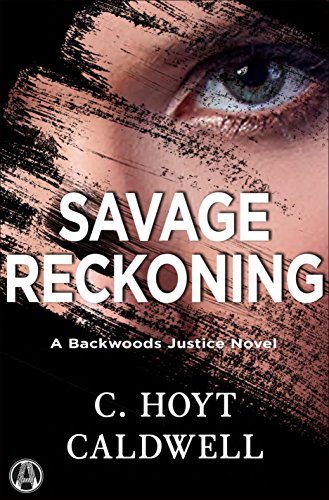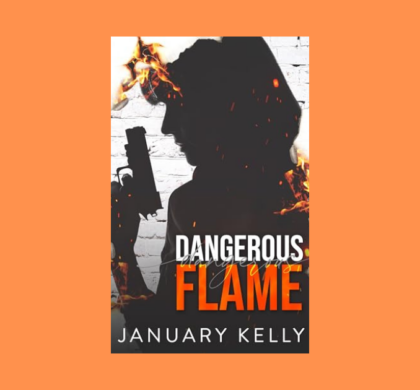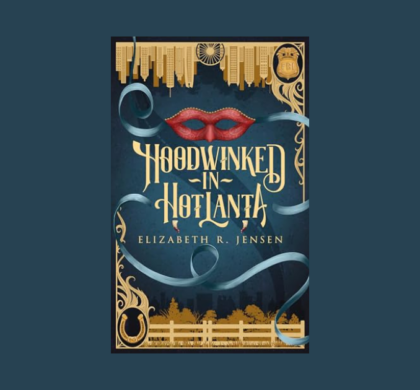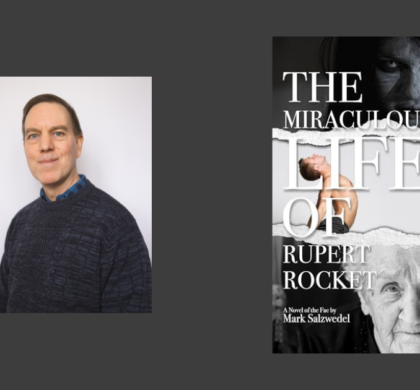Interview with C. Hoyt Caldwell, author of Savage Reckoning
11 Oct 2016
What can you tell us about your new release, Savage Reckoning?
I’m a fan of clueless protagonists. I find books like Dog of the South by Charles Portis to be endlessly fascinating because it’s a story that features a protagonist that doesn’t possess the skillset to take on the conflict he faces, and as a result, his trek is compelling as he stumbles his way through bad luck after bad luck from one chapter to the next. That’s the kind of mood I wanted to establish in Savage Reckoning. While Dani is a perfectly competent deputy, she is still green and learning her way. Throwing her into the fire was the best way to get her into trouble, and trouble is where the fun happens. The same can be said of her eventual cohorts, Step and Kenny. They find themselves out of their element when they start trying to do the right thing. They all find a way to get to where they need to be, but they collect a lot of bumps and bruises along the way.
What or who inspired you to become an author?
A misguided notion of the romantic life of an author was my initial inspiration. I really thought this was going to be a life filled with cocktail parties and cigars. Once that fantasy was dashed, I was drawn to Stephen King books. Not because of the subject matter, but because of his colorful characters. He doesn’t get enough credit for his talent for character development. And then there’s Woody Allen, he made me want to inject humor into “big question” storylines. Erskine Caldwell and Charles Portis turned me towards stories that feature grit and humor in the face of tragedy. Finally, Cormac McCarthy turned me on to the artistry of depravity and brutality in a fictional setting.
Which book from your childhood or teenage years has stuck with you as an adult?
The first book I absolutely fell in love with is Durango Street by Frank Bonham. I had just moved from the Midwest to Chattanooga, Tennessee, and I was having a hard time adjusting to the new culture. Durango Street is about a young black kid released from juvie and thrown back into a gang-filled environment where he struggles to stay out of trouble. I just felt an immediate connection with the main protagonist, and that book showed me that I didn’t have to have the same life experience as someone in order to empathize with them. It was a powerful message, and I still count that book as one of my all-time favorites. I re-read it not too long ago, and the chills and traumatic reactions from when I first read it came back.
If you could require the president to read one book, what would it be?
God’s Little Acre by Erskine Caldwell. It’s a book about extreme poverty in rural Georgia in the 1930s, and it’s startling how little things have changed. You can drive through the foothills and mountains of the Southeast today and find pockets of communities just like the one in Erskine Caldwell’s book. We really should have progressed to a more enlightened society by now. I think any reasonable person would read that book and see how a lack of education and radical income inequality is extremely destructive.
If you had to pick one place to vacation for the rest of your life, where would you choose?
This is going to sound strange coming from a Southerner like me, but I would choose New York City. I love the theater, and I’m a foodie. Add the fact that I can pretty much walk everywhere or take the subway, why would I ever need to leave the city? Besides, I’m married to a Brooklyn girl. How can I not love the city that produced the love of my life?
What scene in Savage Reckoning was your favorite to write?
It’s technically two scenes. I initially wrote it as one but broke it up into two parts in rewrites. It features Step and his girlfriend, Bones, in his house. Calling it my favorite makes me sound like a horrible person because it focuses on how tragic their lives are, but as a writer, exploring the destruction of a character’s life can be liberating. It gives you the illusion of knowing how real life works. This scene dives into the loss that turned Step to a life of crime, and it reveals how Bones stumbled onto heroin and completely destroyed her life. They’re two people who don’t love each other as much as they need someone in their lives as broken as they are. Someone who won’t judge them for the choices they’ve made. On the outside looking in, I was happy they found each other, while at the same time recognizing how bad they were for each other. Life is messy and those scenes illustrate that point in an extreme way.
Do you have a motto, quote or philosophy you live by?
When it comes to writing, I certainly do. I’m involved in a number of writer’s groups and the discussion often turns to a writer’s obligation as an artist. Do we write for ourselves, or do we write for the reader? I decided very early on my responsibilities are to neither. I have a sacred contract with the characters in my books to write their stories, not mine and not the ones my readers expect. Once I start inserting myself or my readers into stories, my writing becomes stale and artificial. The only way to be authentic is to follow the flow of storyline and go where it takes you, even if it takes you to places you have no desire to see and explore. It can get uncomfortable and even stressful, but art should make us all face things we wouldn’t choose to face otherwise.
C. Hoyt Caldwell is the author of the new book Savage Reckoning
Connect with C. Hoyt Caldwell
Author Website
Twitter
Buy The Book
Sign up for our email and we’ll send you the best new books in your favorite genres weekly.




